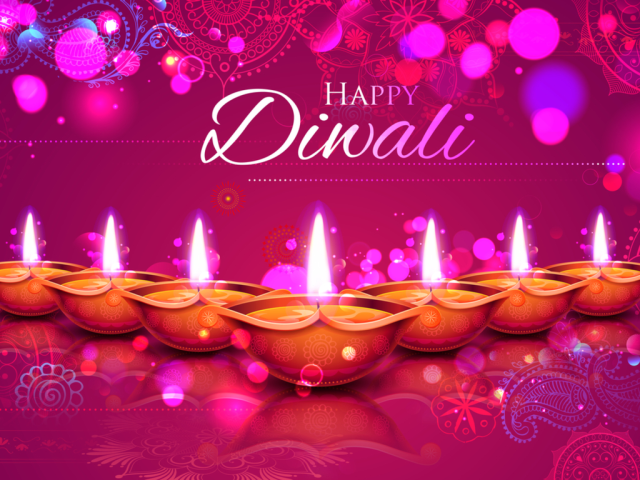2019 Celebrating Diwālī: The five days of Diwālī

"The meaning of Diwālī itself is that the way the lamps are lit outside, you too should be lit within – enlightened. In this dark world you see, you are the lights, you are the lamps and you have to give the light.
But if you are not internally enlightened enough, then how can you give out light? Realize this. So first of all, you Sahaja Yogis should get properly enlightened internally and maybe it is for this purpose alone that we have come into this world."
2007-1110 Talk to Sahaja Yogis (Hindi) (Diwālī Pāḍavā Day), Honesty and Patriotism, Noida, Uttar Pradesh, India
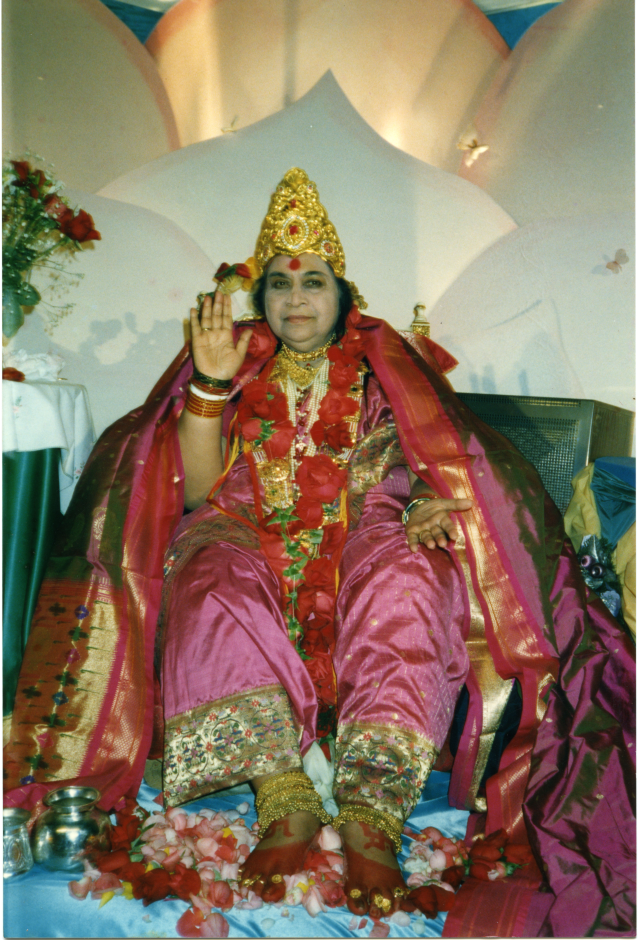
Sumanasa vandita sundari mādhavi chandra sahodari hema maye |
muni gana mandita moksha pradayini manjula bhashini veda nute ||
pankaja vasini deva supujita sadguna varshini shanti yute |
jaya jaya he madhu sudana kamini adi lakshmi sada palaya mam
O Ādi Lakṣhmī, the Primordial Goddess, protect me always.
Pious hearted devotees bow to You.
You are a beautiful spouse of Mādhava, sister of Moon, golden,
worshipped by Sages and bestower of salvation.
Your speech is sweet. You are extolled by Vedas.
You stay on lotus flower. Devatās worship You. You shower virtues. You are serene.
Victory, Victory to You, the dear consort of Madhusūdana.
Aṣhṭalakṣhmī Stotram (praise of Adya Lakṣhmī)
"The significance of Diwālī is spread out in about five days.
......
And they are all together somehow, these five days are all put together. So they have different aspects, but in every aspect there’s one common point is that the Goddess plays the main role."
1992-1025 Diwālī Pūjā, Sala Olimpia (Olympia Sports Hall), Timişoara, Romania
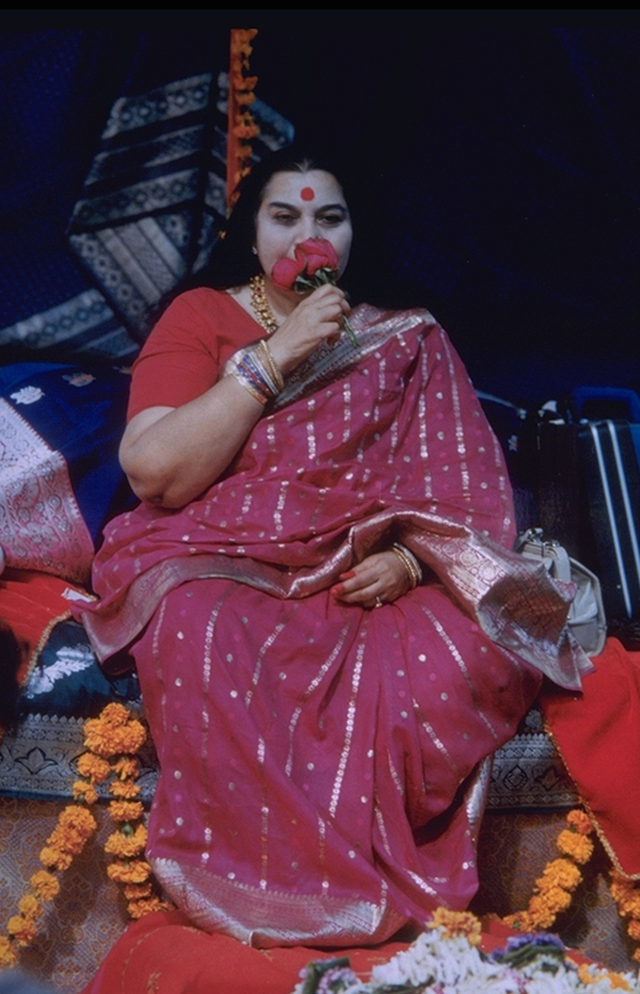
"Pink is Her fragrance, I think is spread on the sky."
1989-1029 Diwālī Pūjā (Diwālī Pāḍavā), Be Honest to Yourself, Auditorium, Gymnasium, Montecatini Terme, Italy
Aiya Deepo ka Tyohar (the festival of lights is here):
video
Day 1 (Friday 25th October) – Dhanteras or Dhanvantri Jayanti
"The first day is the thirteenth day where it is the Gruhalaksmi’s day, that is the day when the gruhalaksmi is worshipped. But a gruhalakshmi has to be worthy of the worship, and then some utensil is given to the gruhalakshmi."
1992-1025 Diwali Pūjā, Timişoara, Romania
It is the first day of the five-day celebration of Diwali. The day when Śhrī Lakṣhmī is worshiped in Her form of Śhrī Gruhalakshmi. It is also called the Dhanvantari Jayanti, the day when Goddess Dhanvantari is born.
Day 2 (Saturday 26th October ) – Naraka Chaturdaśhī
"Horrible Narakāsura as you know him. But actually that day many rakshasas are killed in many… That's the day fixed for killing rākṣhasas."
1980-1109 Diwālī Pūjā (Bhāūbīj Day), The Mahālakṣhmī Power, Temple of All Faiths, Hampstead, London, UK
The day when, according to Śhrī Mātājī, the Goddess gave Her power to Śhrī Kartikeya to kill Narakāsura. Hell's gate is open in the early morning hours (the real Halloween) when Narakāsura is pushed into Hell, so it's advisable to sleep early on the 2nd night and not get up early on Diwali Day (i.e., not to meditate at 4 a.m. or get up early to eat Diwali sweets!), but to get up after sunrise and also leave a lamp burning safely overnight so that Narakāsura's influence is dispersed.
Day 3 (Sunday 27th October) – Diwali/Shri Lakṣhmī Puja
"Then the fifteenth is that darkest night, that's the darkest night when there is no Moon. Absolutely that's the day when they celebrate the Diwālī. But symbolically in India also, Śhrī Rāma returned to Dwari - to His [place, Ayodhya] on that day and was crowned on that day. So the significance of Diwālī is expressed in this manner, that this is the day when Narakāsura, with all of them are killed, they have all gone to Narak, they have gone to the Hell, and the people now are safe from them and they are celebrating the joy. And that is the time when Christ was born. That's why lights are lit just in the night, `cause He was born at twelve o'clock in the night."
1980-1109 Diwālī Pūjā (Bhāūbīj Day), The Mahālakṣhmī Power, Temple of All Faiths, Hampstead, London, UK
This is the third day of celebrations of Diwali.
Day 4 (Monday 28th October ) – Diwali Padwa
"And so on the first, that means the first day of the Moon, the New Year is celebrated. Now see symbolically if Christ is born and the New Year is celebrated next day. As soon as He is born New Year starts. So next year it starts the New Year."
1980-1109 Diwālī Pūjā (Bhāūbīj Day), The Mahālakṣhmī Power, Temple of All Faiths, Hampstead, London, UK
This is the fourth day of Diwali celebrations. This day is one of the three and a half most auspicious days of the year. It is a very auspicious day to begin new things.
Day 5 (Tuesday 29th October ) – Bhaiduj or Bhau Beej
"So today is the second day. Second day is the Bīja - is the they call it the Bhau-bija is the day when the brother and the sister, who are the seeds of one tree have that pure exchange of affection."
1980-1109 Diwālī Pūjā (Bhāūbīj Day), The Mahālakṣhmī Power, Temple of All Faiths, Hampstead, London, UK
This is the last, the fifth day of Diwali celebrations. On this day the brother and sister relationship is celebrated.
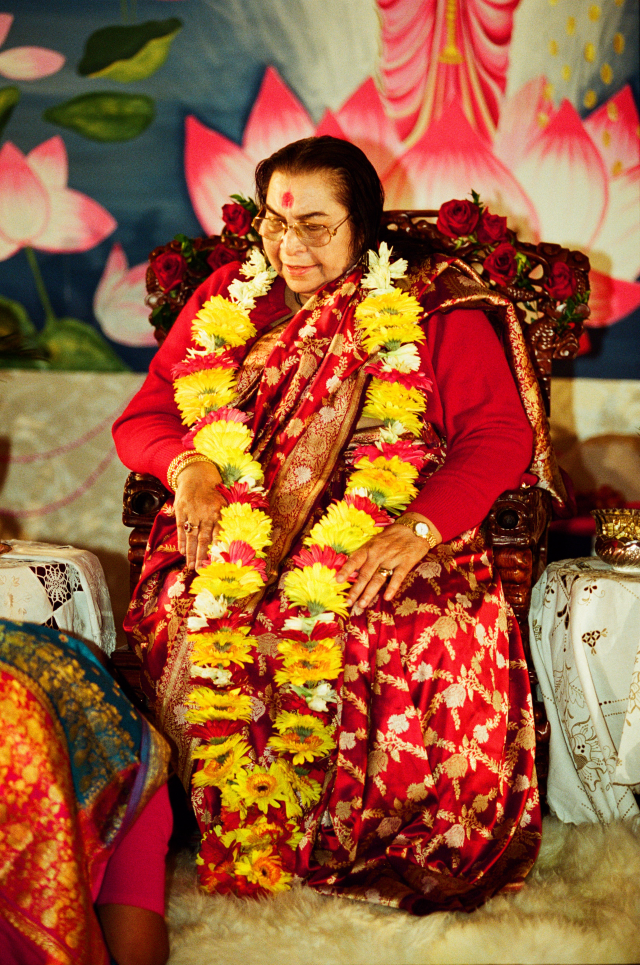
"Diwālī day is specially meant to celebrate with the lights on a day when Lakṣhmī was born."
1987-1024 Talk to Sahaja Yogis, Lecco (50 kms N of Milan on Lake Como), Italy
During the Diwali Festival, we will worship Śhrī Mātājī in Her Forms of Śhrī Lakṣhmī, Śhrī Mahālakṣhmī, and Śhrī Ādi Śhakti. We would like to begin by offering Śhrī Mātājī the welcoming song that was sung to Her before the evening program during the 1987 Diwali Festival in Italy.
Śhrī Lakṣhmī Welcome Song 1987: video
We hope very much that this song will put as in that meditative mood necessary for the five days of worshiping of the Lotus Feet of our Divine Mother.
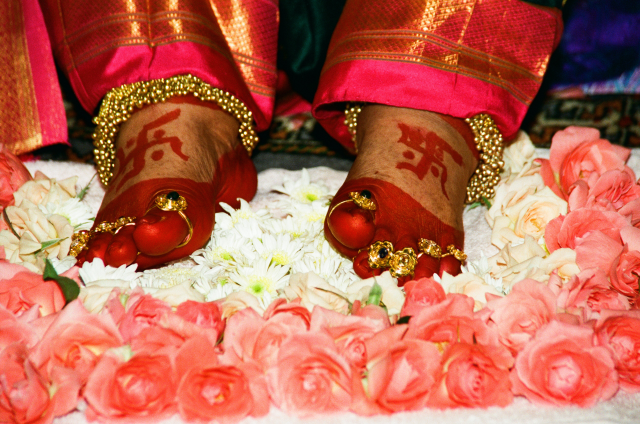
Trayanam devanam triguna-janitanam tava Shive,
bhavet pooja pooja tava charanayorya vira chita I
Tatha hi tvat-padod vahana-manipeethasya nikate,
Sthita hyete shash vanmukulita karottamsa-makutah II
O Spouse of Shiva! The homage rendered to Thy Feet becomes by itself the homage rendered to the Three Gods of Thy Three Gunas.
It is, therefore, that these three gods, Brahma, Vishnu and Rudra, ever stand by the jeweled seat on which Thy Feet rest, with Their folded hands, adorning Their crowns
(Verse 25, Saundarya Lahari by Śhrī Ādi Shankaracharya)
Jai Śhrī Mātājī!
On behalf of the festivity team!
